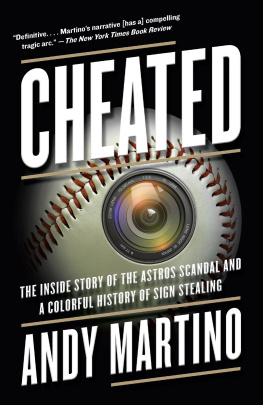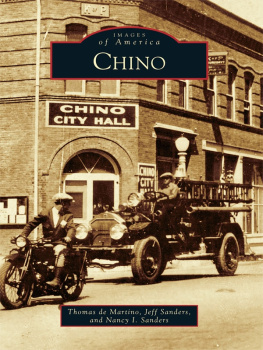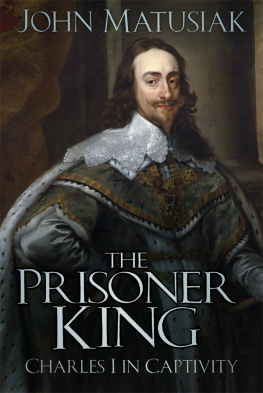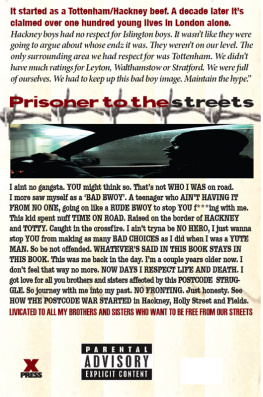Barakaldo Books 2020, all rights reserved. No part of this publication may be reproduced, stored in a retrieval system or transmitted by any means, electrical, mechanical or otherwise without the written permission of the copyright holder.
Publishers Note
Although in most cases we have retained the Authors original spelling and grammar to authentically reproduce the work of the Author and the original intent of such material, some additional notes and clarifications have been added for the modern readers benefit.
We have also made every effort to include all maps and illustrations of the original edition the limitations of formatting do not allow of including larger maps, we will upload as many of these maps as possible.
I WAS CASTROS PRISONER
AN AMERICAN TELLS HIS STORY
BY
JOHN MARTINO
IN COLLABORATION WITH NATHANIEL WEYL
1Roulette Wheels and Firing Squads
WITH my wife, Florence, I made my first trip to Havana in July 1958 for the opening of the Deauville Hotel and Casino. The city was gay, bustling, bursting out horizontally and vertically with new hotels and apartment houses.
Cuba was under General Fulgencio Batista; the revolutionaries were out in the hills, but there was occasional terror in the streets of the city. Teenage followers of Castros 26 th of July Movement would throw bombs in police stations or leave them inside buses carrying people to and from work. When the bombs exploded, they would scatter limbs, flesh and blood, the mangled debris of human beings. In retaliation, the police would sometimes kill suspected bomb throwers and leave their corpses in the streets as a warning to others. We saw very little of this, but we knew it was going on.
We spent about a week in Havana. I installed an electronic protective system for the Hotel Deauville casino. Most of the gambling spots lacked adequate protection and they came to me with the request that I install similar devices. They were quick to realize that this was vital to their business because, when a casino has a crooked croupier, it is for an practical purposes dead. What the Havana gambling places needed were electronic surveillance systems that would make it impossible for the croupiers to rob the gambling tables.
I agreed to make these installations and drew up a list of the equipment I would have to buy in the States. This was work I had been doing for the previous ten years. With my partner, I set up specialized electronic surveillance and protective systems and installed them, designing the installations and sometimes inventing new devices, which I have sold all over the world.
Once I had the equipment, I returned to Havana and proceeded to install it. At this point, I met two people who would play a fateful and malign role in my life, one of them purposefully, the other because of forces beyond his control.
The first of these men was Doctor Gustavo Estevez, the physician of the Hotel Deauville. My acquaintance with him was due to the fact that I had been suffering for fifteen years from chronic colic of the kidneys, a condition that can be extremely painful and that can be arrested, but cannot be cured.
The second was Captain Jos de Jess Castao y Quevedo. A powerfully built, intense and strikingly handsome man in his early forties, Jos Castao was about six feet one and towered over most Cubans. He was Chief of Operations of Batistas special political police organization, the BRAC, or Bureau for the Repression of Communist Activities.
Castao frequented the Deauville casino and we soon struck up an acquaintance. He impressed me as a dedicated professional soldier of the best type. As we got to know each other better, he told me something about his life. He had entered the Cuban Army as a private at the age of nineteen and risen step by step through hard study and superior marks on the competitive military examinations.
By 1940, Castao was assigned to the Cuban Military Intelligence Service. His business was to ferret out anti-democratic activities. During World War II, this meant concentrating on catching Nazi agents. Thereafter, it was a matter of uncovering the secret organizations of Cuban Communism and of Soviet espionage in Cuba. A non-political man, Castao did this work under three different Cuban Presidents, representing two different political parties: Batista, Grau San Martn and Pro Socorrs.
He received special training at the F.B.I. Academy in Quantico. I was told in Cuba that Castao was regarded by FBI Director J. Edgar Hoover as one of the five men in Cuba who really knew the details of the Red network there. Castao was an excellent linguist who had taught modern languages at the Military Academy, El Caribe. As the Communist threat to the Americas gained in importance, he set himself the task of learning first Russian and then Chinese in his spare time.
Deaf Ears and Closed Minds
At the time I met him, Captain Castao was disturbed and unhappy about his work. The revolutionary movement of Fidel Castro was riding high, on U.S. State Department support and a mawkish American press that could see no evil in the bearded leader of the Sierra Maestra. Castao told me on several occasions that he knew Fidel Castro was a Communist and that his movement was under Communist control. Castao said he had tried to get this message to the American people, but the American correspondents in Cuba would neither listen nor examine the evidence. He said he felt like a man shouting from inside a corked glass bottle.
Castao told me that in 1957 and 1958 he sent documents concerning the Communist nature of the Castro movement to the American Embassy in Havana. He did this twice, under the ambassadorships of both Arthur Gardner and Earl E. T. Smith. These reports dealt with the activities of Castro and his men in the Mexican training camps where they prepared their invasion of Cuba. They detailed the connections of the Castro leaders with Mexican and Iron Curtain Communists and contained actual photographs of Fidel Castro in the company of Russians in Mexico City. As far as Castao knew, these reports made no impact on the Americans.
In this, Castao was wrong. Thanks to the testimony of Ambassadors Gardner and Smith before the Senate Internal Security Subcommittee and to Smiths book, The Fourth Floor , we now know that both Ambassadors did their utmost to warn the State Department that support of Fidel Castro might mean a Soviet base in the Caribbean. These warnings were ignored, according to Ambassador Smith, because of the activities of middle-echelon State Department bureaucrats who were committed to the Castro cause.
Later, when I was a prisoner of Fidel Castro, I learned more of Captain Castaos efforts to warn the American people. Julio Garca Garca, a former officer of the BRAC, became one of my cell mates. He told me that in June 1958 Castao had called the American reporters in Havana to a press conference at BRAC headquarters.
Castao showed the group documentary evidence that Fidel Castro and his leading henchmen were Communists. Jules Dubois, correspondent for the Chicago Tribune, who was at the time a defender of Castro and his movement, called the documents a paquete that is to say, a bundle of forgeries concocted by the Batista Government. He was joined in this attitude by Herbert L. Matthews of the New York Times . Captain Castao pleaded with these people, pointing out that the documents were authentic and that the material had been given to the American Ambassador.






![Alfred C. Martino - Audio Nuggets: How To Get A Street Named [Text]](/uploads/posts/book/400603/thumbs/alfred-c-martino-audio-nuggets-how-to-get-a.jpg)



